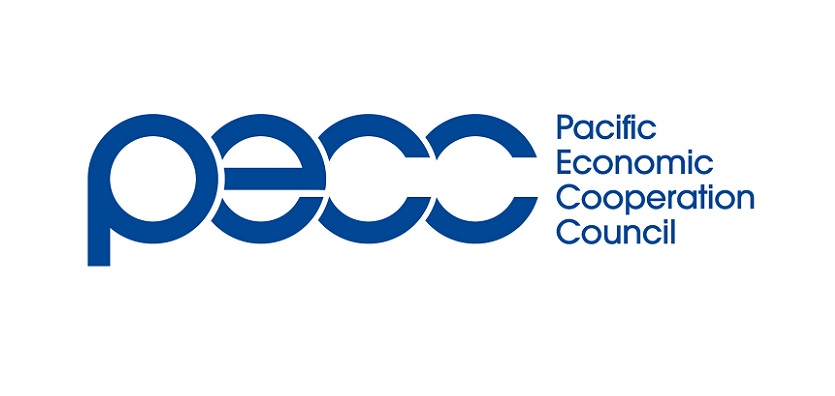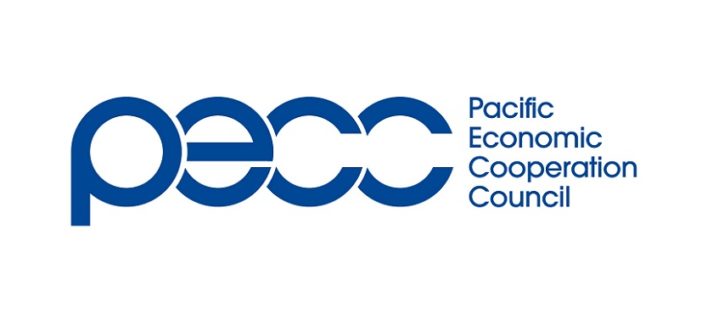
- Two-thirds of policy experts cite increased protectionism and trade wars as top risk to regional growth
- 43% of respondents selected a possible slowdown in world trade growth and a possible slowdown in China as risks to growth for their own economies
- Half of respondents say new technologies will reduce the number of jobs in the region by 2030 – with clerical support, manufacturing, labourer and personal services roles most affected
Asia-Pacific economic growth is significantly threatened by a global trade war and increasing protectionism, according to a new report by the Pacific Economic Cooperation Council (PECC).
The thirteenth annual State of the Region report for 2018-19 from the PECC has been released as international political and business leaders convened for the Asia-Pacific Economic Cooperation (APEC) Leaders’ Meeting in Port Moresby, Papua New Guinea.
The report includes the results of a survey of 529 regional policy experts on key developments and challenges that the Asia-Pacific region is facing. According to the survey the top five risks to regional economic growth in the next two to three years are:
- Increased protectionism and trade wars – 62.1%
- Possible slowdown in world trade growth – 43.9%
- Possible slowdown in the Chinese economy – 43.3%
- Lack of political leadership – 36.1%
- Corruption – 32.7%
The Asia-Pacific region is expected to grow by 3.7% in 2019, a significant downward revision from forecasts made earlier in 2018. This is a result of materialization of risks to growth such as trade conflicts, higher commodity prices, rising interest rates and volatile capital markets.
A slowdown in world trade and the Chinese economy also weighed in heavily among respondents. 42.7% of respondents expect that economic growth in the Chinese economy would be weaker in the upcoming year, however India (42.3%) and Southeast Asia (49.1%) were expected to have stronger economic growth in the upcoming year. This was in contrast to respondents’ views for the global economy, with only 26.4% expecting stronger growth in the upcoming year.
Mr. Eduardo Pedrosa, Secretary General of the PECC, said “While protectionism has clearly been on the rise, it is slightly reassuring there are liberalizing measures undertaken by Asia-Pacific economies. These include the conclusion of the Comprehensive and Progressive Agreement on TransPacific Partnership (CPTPP) and the ongoing negotiations on the Regional Comprehensive Economic Partnership (RCEP), which should provide a critical amount of policy certainty that would encourage business investment.”
Mr. Don Campbell, Co-chair of the PECC, said: “In the backdrop of what some have called ‘the
biggest trade war in economic history’, it is important that political and business leaders recognise the
need to manage economic concerns by having clearly defined policies that encourage cooperation
and coordination with one another. Only then can regional economies successfully navigate the
challenges arising from technology and integration.”
The Future of Work
This year’s State of the Region also studies the impact that technological advancement is expected to
have on Asia-Pacific workforces, with 55% and 54% of Southeast and Northeast Asia respectively,
expecting more employment losses than gains by 2030.

“Table 2.1: Workforce size: Expectations of change in overall economy by regional grouping (%)”
Occupations with lower skills requirement are likely to be impacted the most with 64.1% expecting a
decrease in the number of clerical support workers by 2030, followed by 59.1% for plant and machine
operators; 58% for labourers in mining, construction, manufacturing and transport; and 56.5% for
personal services and sales roles. With a reduction in jobs, around half of respondents expected
surpluses of workers in these same professions in Asia-Pacific by 2030.
Reflecting the rise of new technologies and Asia-Pacific’s aging population, the greatest occupational
shortages are expected to be in science and engineering professionals (59.2%); elderly care workers
(56.3%); and information and communications technology professionals (55.3%). Additionally,
respondents ranked critical thinking (75%), complex problem solving (71.8%) and creativity (61%) as
being the hardest employee skill-sets to find in their economies by 2030.
In terms of preparedness, the vast majority of those surveyed feel their economies are unprepared to
deal with the training, upskilling and possible disruption from new technologies in their economy.
Three quarters (76%) say their labour markets and social security systems are not fully prepared,
while 66.7% feel their education system is unprepared – with little difference seen between emerging
and developed economies.
The research on the future of work was prepared by Professor Kostas Mavromaras, Director of the
Future of Employment and Skills Research Centre (FES), Faculty of Professions, University of
Adelaide.
Mr. Pedrosa said: “The report advises that how well economies adjust to technological change will
depend on its capacity to match the skills on offer by all available workers with the skills required.
Technological advancement is also expected to create significant occupational and structural change,
increasing the quality of workforces while decreasing the quantity required. It is important for policy
makers to understand the impact of technology on the nature of work and how to enable smooth,
seamless transitions.”
APEC Leaders’ Meeting
As the APEC Leaders’ Meeting is underway, it continues to be recognised as an important institution
among stakeholders. 63.4% of respondents agree that APEC is as important or more important today
compared to when it was created in 1989 and 68% agree that APEC should focus its work on trade
policy to achieving a Free Trade Area of the Asia-Pacific (FTAAP).
According to the policy experts surveyed, the top five priorities that APEC leaders should address in
Port Moresby are:
- Rising trade tensions and the future of the World Trade Organization and multilateral trading system
- The emergence of anti-globalization & anti-trade sentiments
- Progress on the APEC growth strategy to promote balanced, inclusive, sustainable, innovative and secure growth
- Progress towards the Bogor Goals and the FTAAP
- Investing in human capital development in the digital age
Mr. Su Ge, Co-chair of the PECC, said: “It is reassuring that the APEC continues to be held in such regard and for it to be recognised as an important institution among stakeholders, helping economies to successfully navigate the changing world, with a much clearer focus on structural policies and inclusive trade at its core.”
About the Pacific Economic Cooperation Council
The Pacific Economic Cooperation Council (PECC) is a non-profit international organization committed to the promotion of cooperation and dialogue in the Asia Pacific. Founded in 1980, the PECC is a tripartite network of 26-member committees comprising individuals and institutions dedicated to this shared mission.
As the only non-governmental official observer of APEC (Asia-Pacific Economic Cooperation), PECC provides independent business and research input for the regional policy-making process. For more information, please visit: www.pecc.org
About State of the Region
The State of the Region report is an annual statement of PECC’s views on the major developments affecting Asia-Pacific regional cooperation. The report contains a macroeconomic overview of the current state of the region and related issues. It contains results from its annual survey of opinionleaders of perceptions on key developments in the region and priorities for APEC. This year, the survey was conducted from 13 August to 19 September and responses were received from 529 opinion leaders.
Respondents to the PECC survey are high-profile senior individuals from the academia, business, government, civil society, and the media. For more information, please visit: www.pecc.org/research/state-of-the-region






